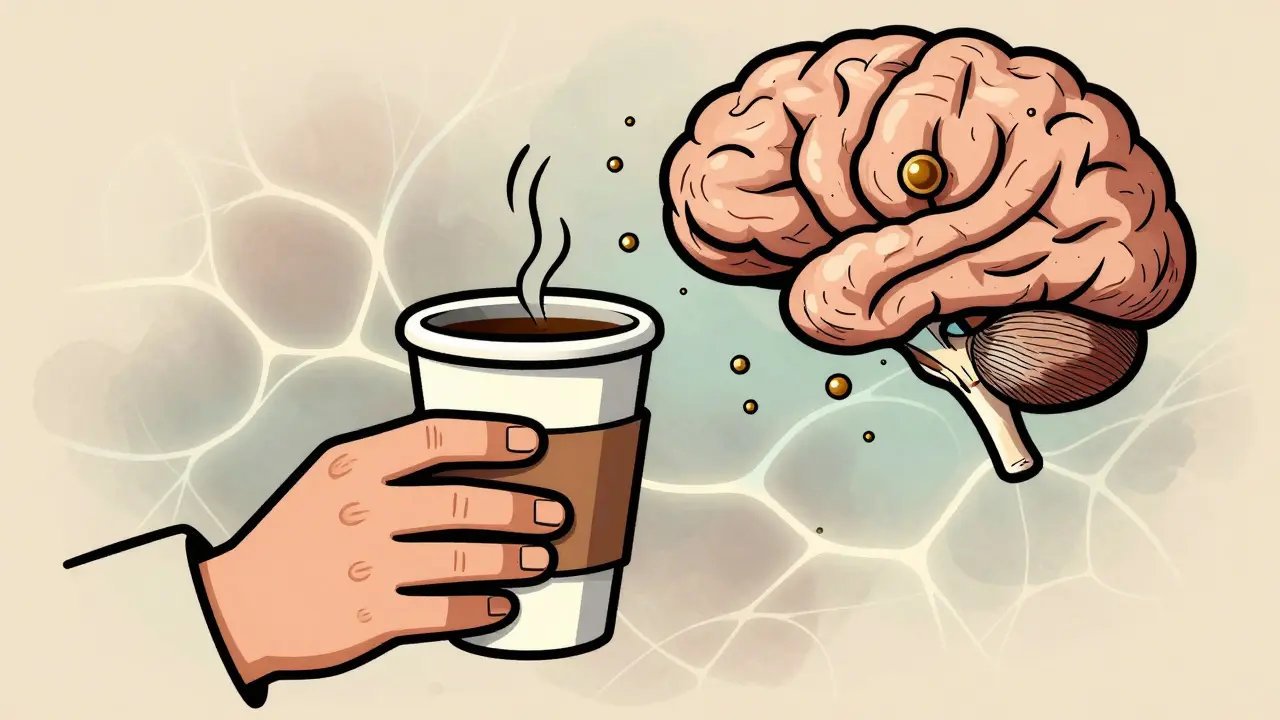Muscle Stiffness: Causes, Fast Relief & When to See Help
Muscle stiffness is that tight, hard-to-move feeling you get after overdoing it, sitting wrong, or sleeping awkwardly. Sometimes it's a cramp or spasm. Other times it’s a deeper ache from inflammation or a nerve problem. You want to feel better fast and know whether this will pass or needs medical care. Here’s straightforward, practical help.
What usually causes stiffness
Common causes are overuse, poor posture, or a minor strain. Dehydration and low electrolytes (especially potassium, magnesium) can trigger cramps. Inflammation from arthritis or injury makes muscles feel tight around a joint. Neurological issues and certain meds can cause ongoing stiffness, too. If stiffness follows an obvious event — a workout, long drive, or a fall — start with home care. If it comes on suddenly without a trigger, pay more attention.
Stiffness from muscle spasm feels like a hard knot you can press on. Spasticity (seen with some nerve conditions) is more constant and resists movement. Knowing the difference helps choose the right fix.
Quick at-home fixes that help most people
For most mild stiffness try this mix: gentle stretching, heat, and moving the muscle. Heat warms and relaxes tissue — use a warm towel or heating pad for 15–20 minutes. After heat, stretch slowly and breathe. If the muscle is acutely painful and swollen, start with ice for 10–15 minutes, then switch to heat in a day or two.
Over-the-counter pain relievers like ibuprofen or naproxen reduce inflammation and allow better movement. If you prefer prescription options, some people find short courses of muscle relaxants (for example, tizanidine or baclofen) helpful — talk to your doctor about risks and interactions. Topical creams and rubs can ease tight spots, and massage or foam rolling breaks up knots.
Don't forget basics: hydrate, eat a balanced diet to keep electrolytes stable, and get enough sleep. If stiffness follows heavy exercise, slow return to activity with light movement prevents longer-lasting tightness.
For ongoing stiffness, physical therapy gives targeted stretches, strengthening, and posture work. A therapist can show simple daily drills that stop stiffness from coming back.
When should you see a doctor? Seek urgent care if stiffness comes with fever, sudden weakness, numbness, trouble breathing, chest pain, or loss of bladder/bowel control. Book a regular appointment if stiffness lasts more than two weeks, keeps coming back, or limits daily tasks despite home care.
Want more on treatments? We have deeper guides on muscle relaxants, pain medicines like celecoxib, and natural remedies for joint and muscle comfort. Try one small change today — a short heat session and gentle stretch — and see if you feel a real difference.


